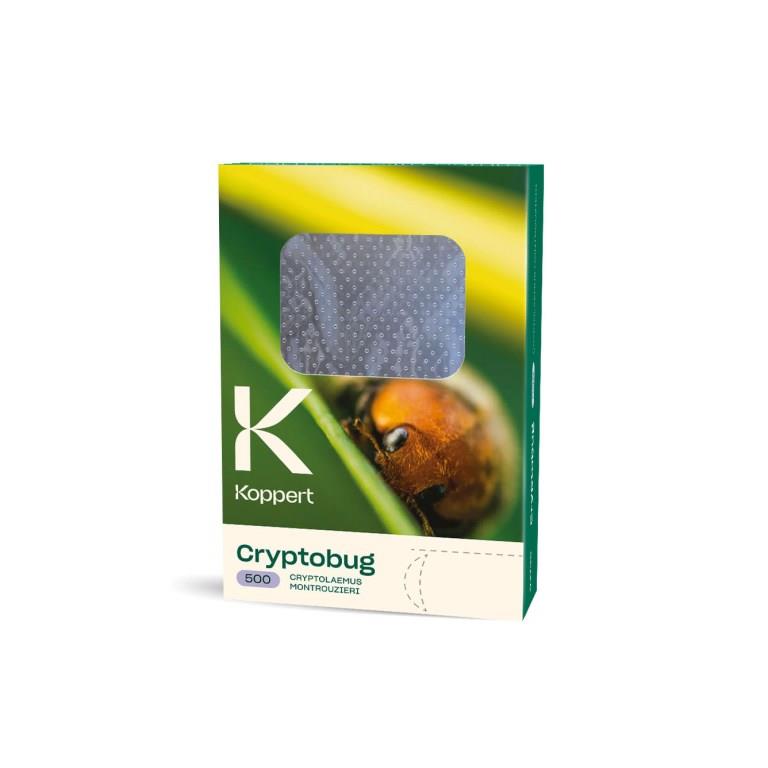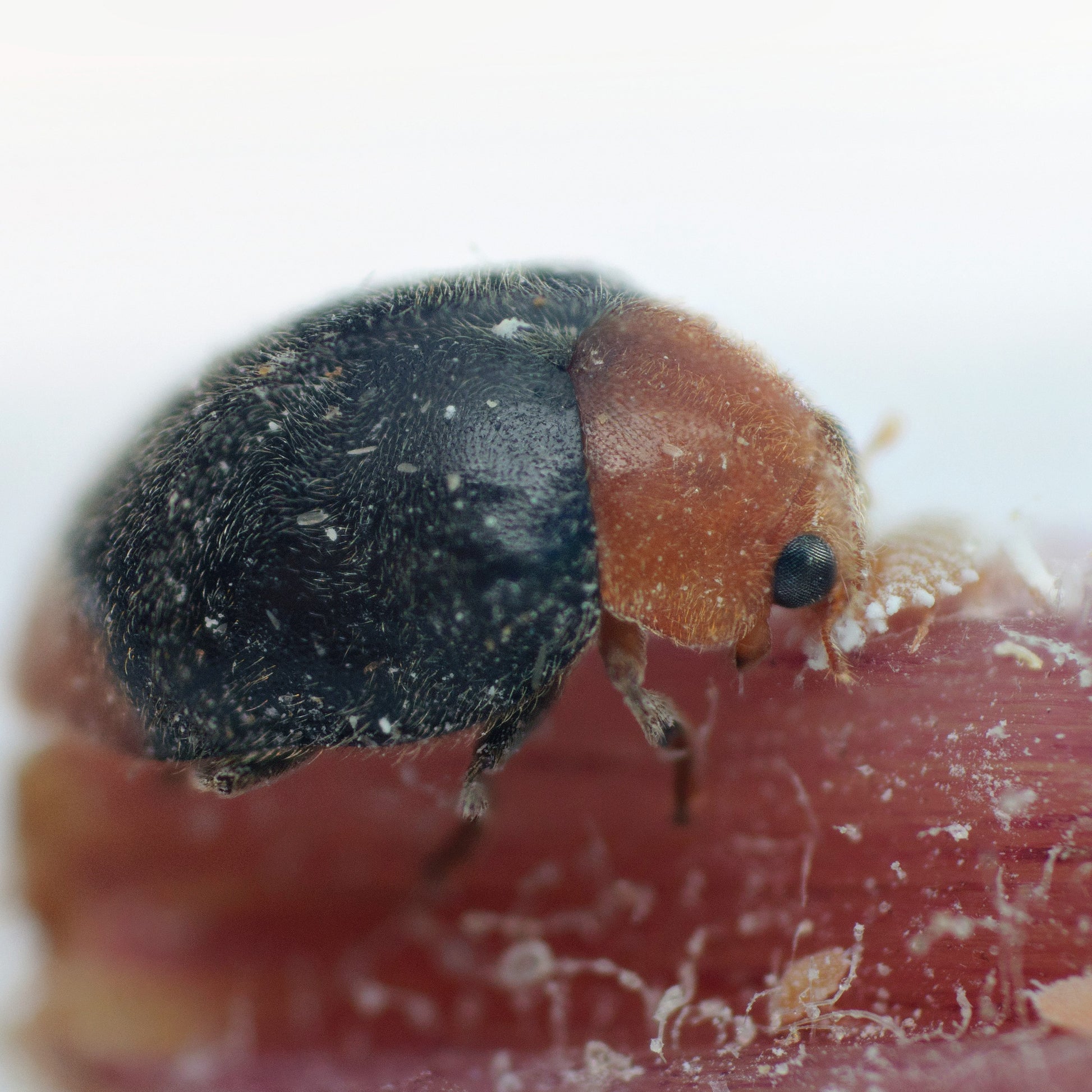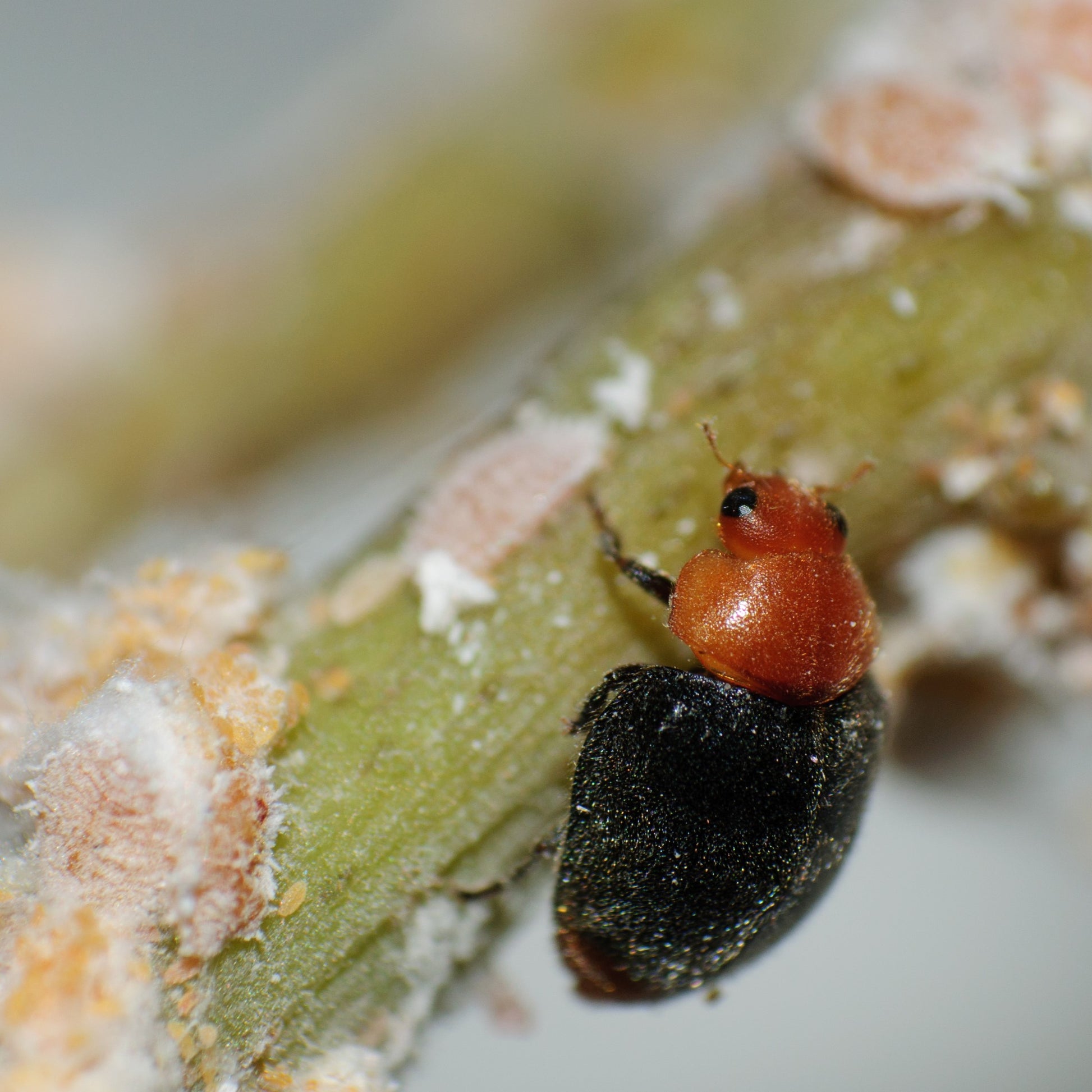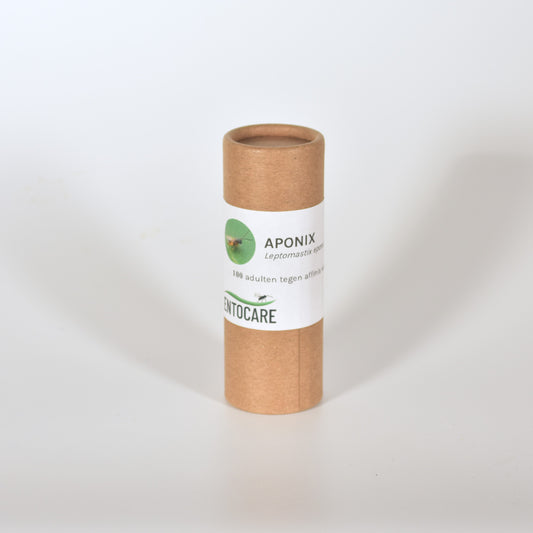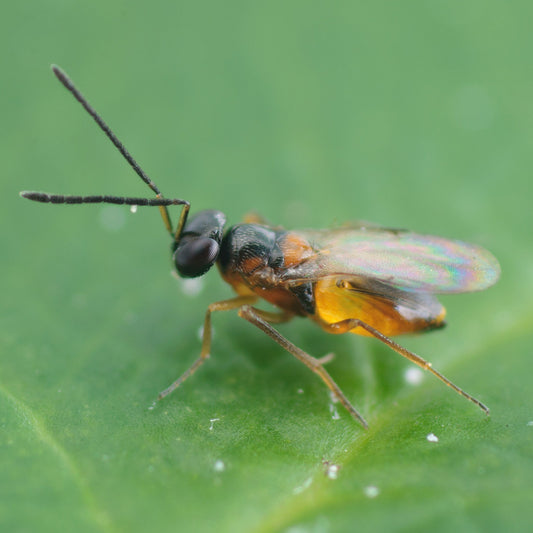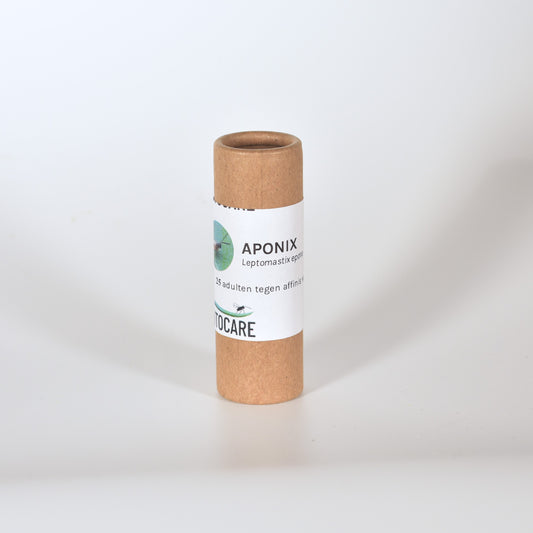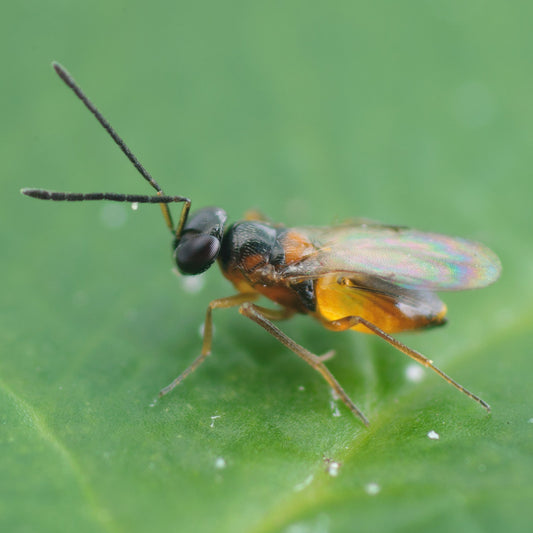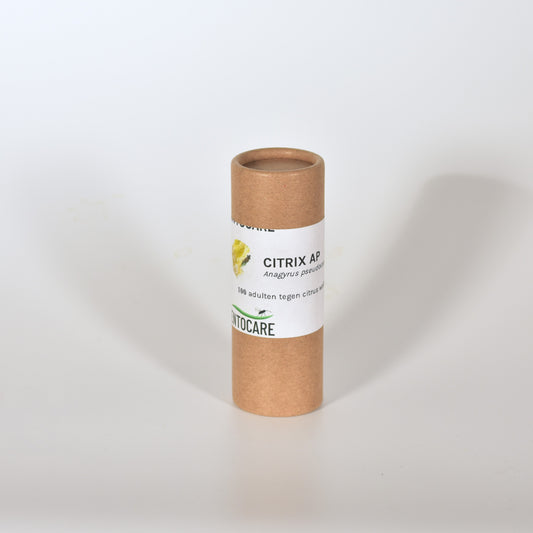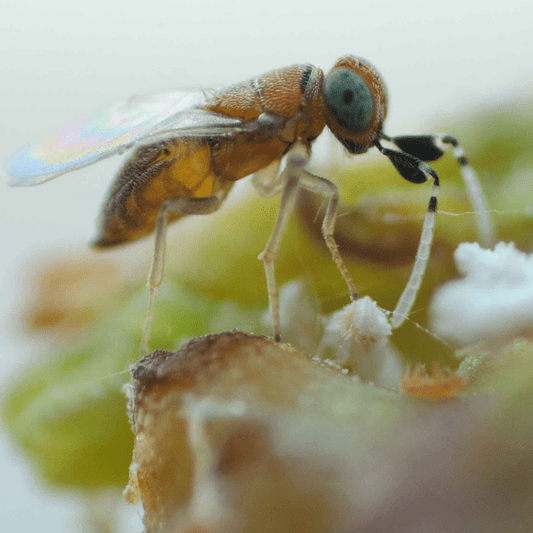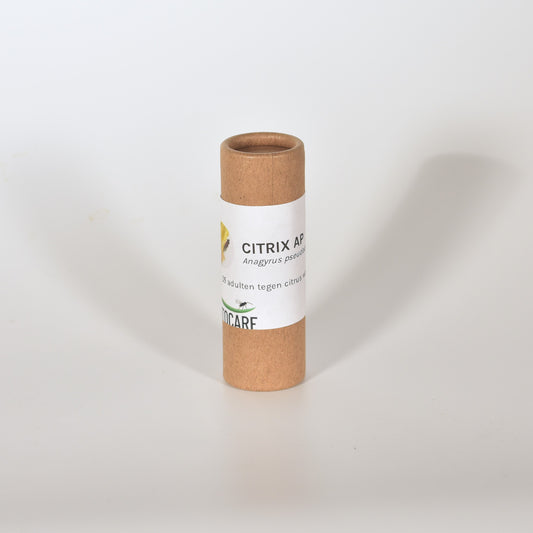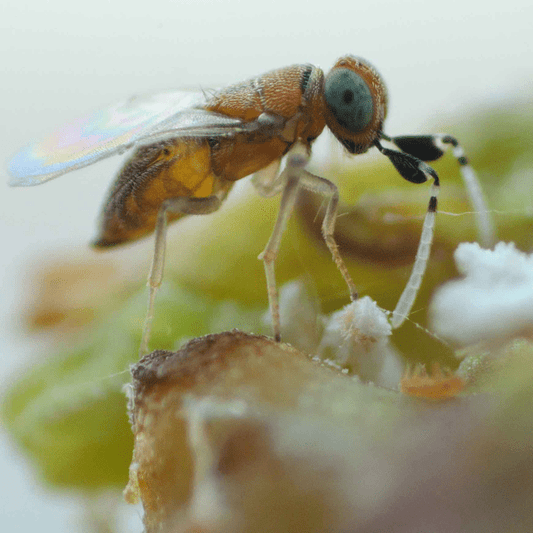Koppert
CRYPTOBUG - 500
CRYPTOBUG - 500
against mealybug
CRYPTOBUG contain lady beetles that can be used for the biolgical control of various mealybug species. They feed on the mealybugs and deposit their eggs in the mealybug egg masses. The larvae that hatch from the eggs in turn feed on mealybugs. This product can be applied in greenhouses and other indoor environments. The ladybirds are available in units of 500, only for our business customers.
Specificaties
Specificaties
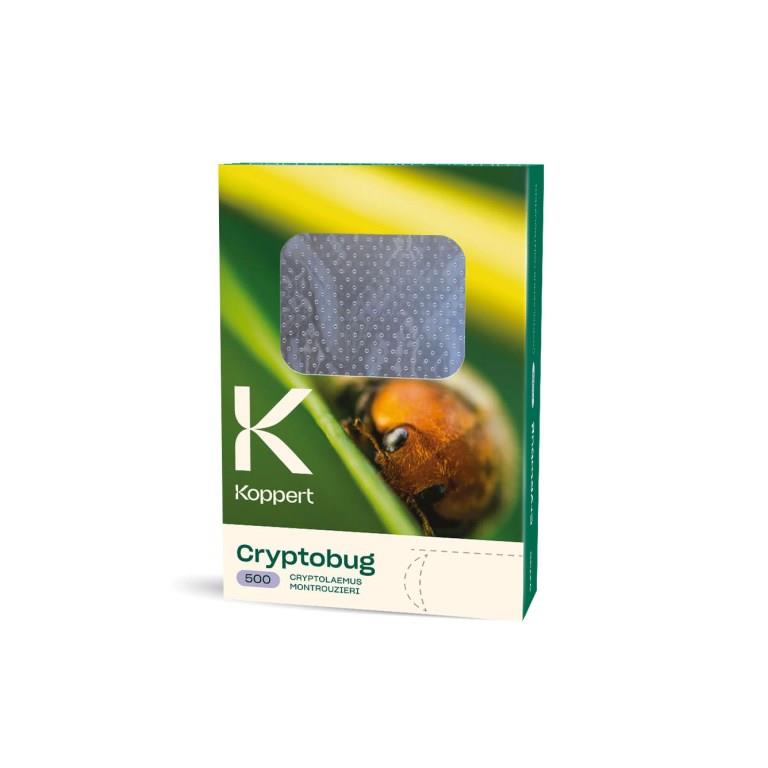
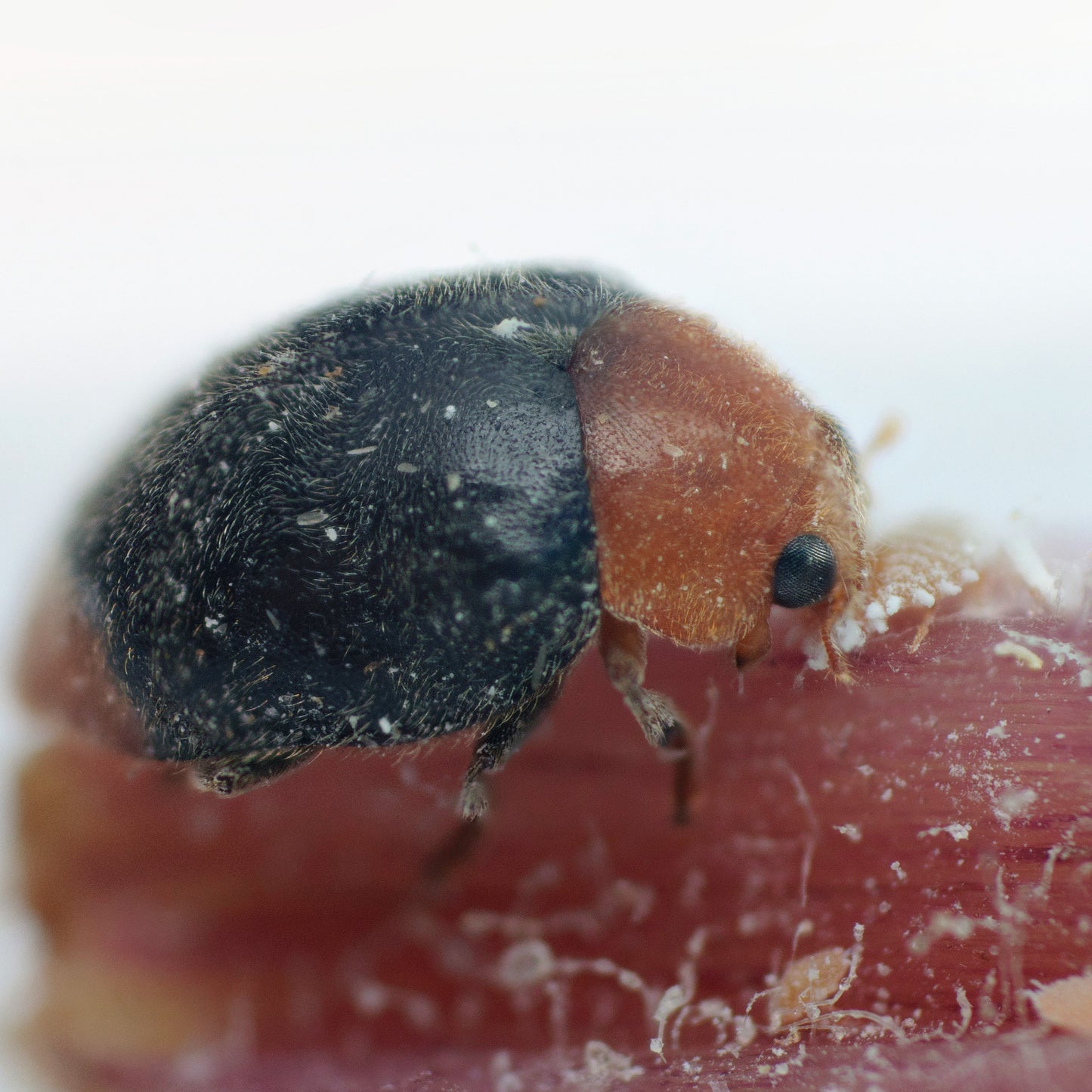
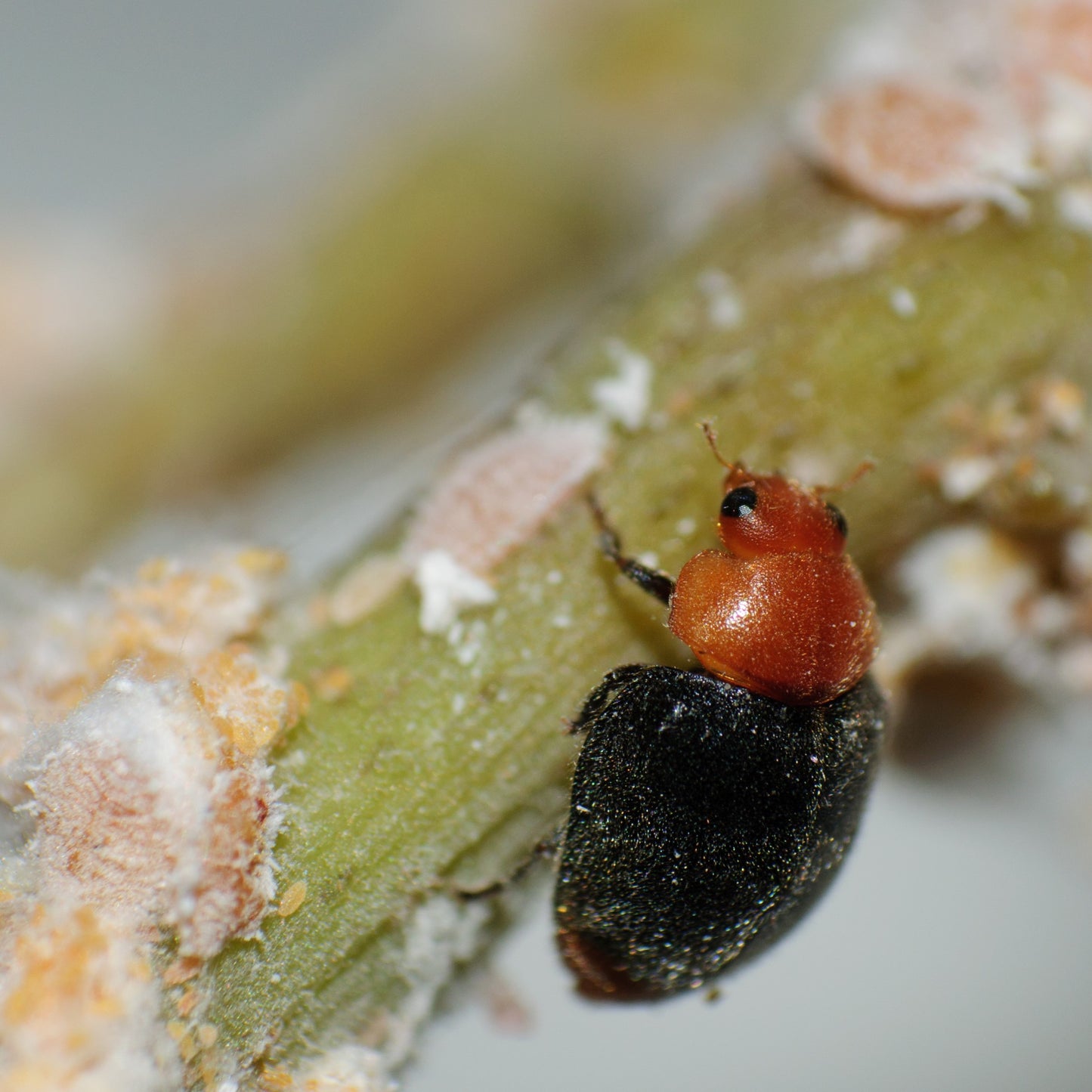
What is CRYPTOBUG?
This product contains ladybirds that van be used for the biological control of various mealybugs. They can be released in the greenhouse year-round and in the garden during summer. This product contains the adult ladybirds. These beetles are black; have an orange head and are 3-4 mm big. The adult predatory beetles mostly walk through the crop. They rarely fly; only shortly after having been introduced.
How does CRYPTOBUG work?
The beetles feed on all stages of mealybug. In addition; the female beetles lay their eggs in the woolly egg masses of the mealybugs. The young larvae that emerge from these eggs will in turn feed on the mealybugs. The beetles lay less eggs if the mealybug species do not produce an egg mass. After a mealybug has been fed on; a white; empty shell remains on the plant. CRYPTOBUG is very effective at removing mealybug hot spots.
How to combine CRYPTOBUG
For a fast result; you can release CRYPTOBUG-L. This product contains larvae of the CRYPTOBUG ladybird. They are voracious and will consume numerous mealybugs during their development. The larvae are perfect for removing mealybug hot spots. To target the more dispersed mealybugs; we recommend to combine them with parasitoids; such as LEPTOMASTIX DACTYLOPII and LEPTOMASTIDEA ABNORMIS against citrus mealybug or CRYPTANUSIA AUREISCUTELLUM and ANAGYRUS FUSCIVENTRIS against long-tailed mealybug.
![]()
In greenhouses: January - December
Hobby greenhouse: April - September
![]()
T = 20 - 30°C
![]()
RH = 50 - 80%
![]()
indoor garden, ornamental production
- Floriculture: release at mealybug hot spots, 3-5 per m²,
- repeat at least three times with two weeks inbetween.
- Indoor gardens: release 5-10 per infested plants.
- Repeat until infestation is under control.
- Hobby greenhouse: release 5 per infested plant.
- Release up to 10 beetles per plant when infestation is heavy.
- Open the package in the greenhouse en distribute the beetles over the infested plants.
- Release them during the evening: they tend to fly away when there is too much light.

